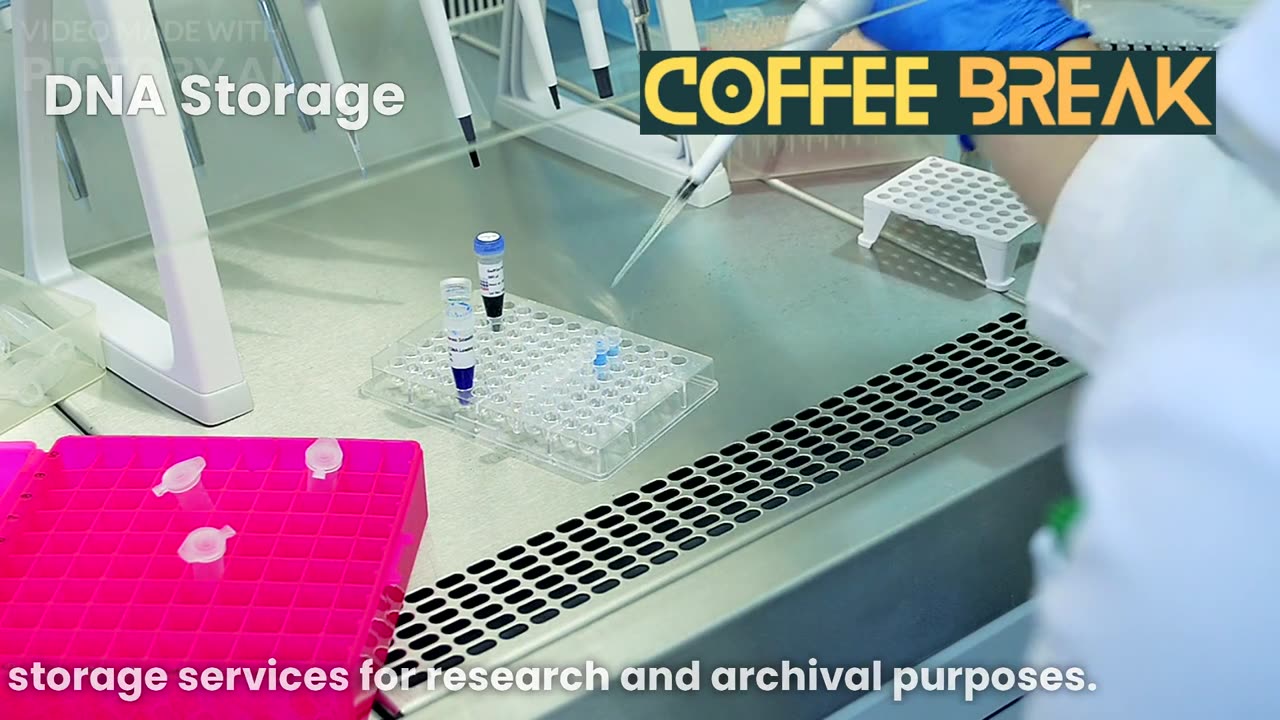Premium Only Content

DNA: The Future of Data Storage
DNA: The Future of Data Storage
The idea of using DNA for computer storage might sound like science fiction, but it's a rapidly evolving field with immense potential. Here's how DNA could revolutionize data storage:
Advantages:
High density: A single gram of DNA can store over 1 exabyte of data, compared to a few terabytes for a hard drive. That means the Library of Congress could fit in a coffee mug, and all the world's data could be stored in a room!
Durability: DNA has a half-life of over 500 years, significantly longer than current storage options. Imagine storing irreplaceable historical documents or vital medical records for millennia!
Archiving: DNA doesn't require electricity or special maintenance, making it ideal for long-term archiving. No more fear of data corruption or obsolete formats!
Self-repairing: DNA naturally repairs itself, reducing the risk of data loss. Think of it as built-in redundancy!
Encoding data in DNA:
Binary data (0s and 1s) is mapped to the four DNA bases (A, C, G, and T).
Synthetic DNA strands are created with the encoded data.
These strands are stored in capsules or frozen for preservation.
Challenges:
Cost: Synthesizing and sequencing DNA is still expensive, but the cost is steadily decreasing.
Speed: Reading and writing data is much slower than with traditional storage. It's more like a "black box" for archiving than everyday use.
Error correction: DNA errors can occur during synthesis and sequencing, necessitating sophisticated error correction algorithms.
Current state:
Scientists have successfully encoded and retrieved digital data in DNA, including the entire English Wikipedia.
Companies like Twist Bioscience and Catalog offer DNA storage services for research and archival purposes.
While not yet mainstream, it's gaining traction for long-term data preservation and niche applications like storing medical records on DNA chips implanted in humans.
In conclusion, DNA storage holds immense potential for the future of data storage. While challenges remain, research and development are rapidly advancing, bringing this once futuristic concept closer to reality. Imagine a world where our most precious data is safely stored in the building blocks of life itself, accessible for generations to come. It's an exciting prospect, and one that I believe will continue to evolve and shape the way we store and preserve information in the future.
Do you have any further questions about DNA storage or other innovative technologies? I'd be happy to discuss them further!
-
 1:01:25
1:01:25
VINCE
3 hours agoTrump Puts China In Their Place w/ Tim Murtaugh | Episode 19 (04/10/25)
185K165 -
 LIVE
LIVE
LFA TV
14 hours agoLFA TV - ALL DAY LIVE STREAM 4/10/25
4,783 watching -
 LIVE
LIVE
The Big Mig™
3 hours agoBOOM, Trump Signs EO To Investigate The 2020 Election
5,081 watching -
 LIVE
LIVE
Canada Strong and Free Network
3 hours agoCanada Strong and Free Network
320 watching -
![Arena Breakout: IGNITION [Creator Preview] - #RumbleGaming](https://1a-1791.com/video/fww1/a6/s8/1/F/x/Z/A/FxZAy.0kob-small-Arena-Breakout-IGNITION-Cre.jpg) LIVE
LIVE
LumpyPotatoX2
2 hours agoArena Breakout: IGNITION [Creator Preview] - #RumbleGaming
57 watching -
 1:03:38
1:03:38
Geeks + Gamers
27 days agoWoke Disney Fans MAD At Lilo And Stitch Trailer, Dwarf Actors PISSED At Rachel Zegler's Snow White
25.5K5 -
 56:26
56:26
BonginoReport
5 hours agoThe World Must Choose: America or China - BR Early Edition w/ Evita (Ep.179) - 04/10/2025
136K177 -
 3:17:27
3:17:27
Matt Kohrs
11 hours agoBreaking CPI Inflation Report (Stock Market Pump) || The MK Show
64.5K3 -
 1:09:45
1:09:45
Dear America
12 hours agoTrump Puts China On An Island, Brings Xi Jinping To His Knees + Tampon Tim Gets BOOED By Veterans!
79K13 -
 LIVE
LIVE
Wendy Bell Radio
6 hours agoTrump Wins Again
8,432 watching